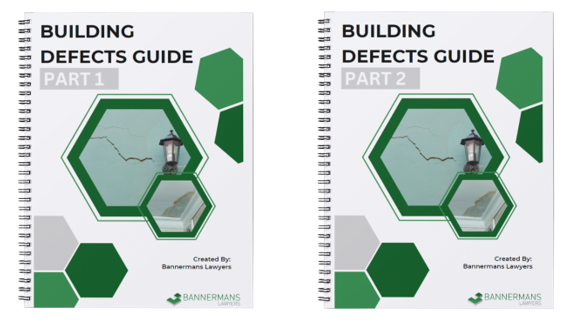Limitations on Limitation of Liability Clauses in Construction Contracts
Posted 24 August 2024
Category: Construction
Design and Building Practitioners Act Compliance Quiz
Find out whether your planned works need to comply with the Design and Building Practitioners Act 2020.
It has been commonly accepted for many years by many of those in the construction industry in New South Wales that contractors could limit their liability for negligence to the value of their fees or reduce the period of time of liability.
Those limitation clauses will face tests for their validity and possible penalties imposed by:
- section 40 of the Design and Building Practitioners Act 2020 (D&BPA);
- the Unfair Contract Term Regime (UCT Regime); and
- section 18G of the Home Building Act (HBA).
Duty of care imposed by D&BPA
From 10 June 2020, Part 4 of the D&BPA imposes on any person who carries out construction work a duty to exercise reasonable care to avoid economic loss caused by defects:
- in or related to a building for which the work is done, and
- arising from the construction work.
(D&BPA Duty of Care)
Section 40 of D&BPA
Section 40 of the D&BPA provides:
40 No contracting out of Part
- This Part applies despite any contracts or stipulations to the contrary made after the commencement of this Part.
- No contract or agreement made or entered into, or amended, after the commencement of this Part operates to annul, vary or exclude a provision of this Part.
Any contract term, on the proper construction of the contract, is void if it is considered by the Court to annul, vary or exclude the D&BPA Duty of Care.
UCT Regime
From 9 November 2023, the UCT Regime under the Australian Consumer Law (ACL), being Sch 2 of the Competition and Consumer At 2010 (Cth), and the Australian Securities and Investments Commission Act 2001 (Cth) (ASIC Act) has been expanded. It is now applicable to standard form contracts for consumers or small business contracts entered or renewed on or after 9 November 2023.
A building contact is potentially subject to the UCT Regime when:
- the building contract is a standard form contract, which is typically prepared by one party, containing standard terms and not negotiated between the parties. It is often offered on a “take it or leave it” basis; and
- a party to the contract is a small business, which is defined as a business that employs fewer than 100 staff or have a turnover of less than 10 million per year. The small business definition is broad enough to cover most builders.
In the UCT Regime, a contract term is considered unfair when:
- the term is greatly in favour of one party;
- the term is not necessarily to protect party’s legitimate interests; and
- the term causes detriment to one party.
In the case Australian Competition and Consumer Commission v Fujifilm Business Innovation Australia Pty Ltd (previously known as Fuji Xerox Australia Pty Limited (FXA)) [2022] FCA 928, the terms in the standard form contract used by FXA were determined by consent to be unfair, which include a limitation of liability clause that:
“limits FXA’s liability for any delay in supplying or delivering equipment to the customer in circumstances where the customer has no right to be excused from charges payable for the period of the delay”.
The building contract terms in the standard form contract attempting to contract out the D&BPA Duty of Care may be void and not enforceable if the term is found to be unfair under the UCT Regime.
Significant penalties have been introduced for companies in the event their contract is in contravention of the UCT Regime:
- Under ACL, the greater of:
- $50 million; or
- Three times the benefit obtained from the conduct; or
- 30% of the company’s adjusted turnover during the breach turnover period (12 months minimum).
- Under ASIC Act, the greater of
- 50,000 penalty units ($15,659,000); or
- Three times the benefit obtained from the conduct; or
- 10% of annual turnover, capped at 2.5 million penalty units ($782.5 million).
Warranties imposed by the HBA
Section 18B of the HBA implies the following warranties by the holder of a contractor licence, or a person required to hold a contract licence before entering into a contract, in every contract to do residential building work:
- a warranty that the work will be done with due care and skill and in accordance with the plans and specifications set out in the contract,
- a warranty that all materials supplied by the holder or person will be good and suitable for the purpose for which they are used and that, unless otherwise stated in the contract, those materials will be new,
- a warranty that the work will be done in accordance with, and will comply with, this or any other law,
- a warranty that the work will be done with due diligence and within the time stipulated in the contract, or if no time is stipulated, within a reasonable time,
- a warranty that, if the work consists of the construction of a dwelling, the making of alterations or additions to a dwelling or the repairing, renovation, decoration or protective treatment of a dwelling, the work will result, to the extent of the work conducted, in a dwelling that is reasonably fit for occupation as a dwelling,
- a warranty that the work and any materials used in doing the work will be reasonably fit for the specified purpose or result, if the person for whom the work is done expressly makes known to the holder of the contractor licence or person required to hold a contractor licence, or another person with express or apparent authority to enter into or vary contractual arrangements on behalf of the holder or person, the particular purpose for which the work is required or the result that the owner desires the work to achieve, so as to show that the owner relies on the holder’s or person’s skill and judgment.
(HBA Warranties)
Section 18G of the HBA
Section 18G of the HBA provides:
18G Warranties may not be excluded
A provision of an agreement or other instrument that purports to restrict or remove the rights of a person in respect of any statutory warranty is void.
Any contract term, on the proper construction of the contract, is void if it is considered by the Court to restrict or remove the rights of a person in respect of the HBA Warranties.
See the link below for further reading in relation to contract terms limiting liquidated damages made void by the operation of section 18G of the HBA.
UCT Regime
In a similar way mentioned above, the UCT Regime may apply to a building or engineering contract , or a consulting or superintendent agreement entered into on or after 9 November 2023 having limitation of liability clauses on the HBA Warranties. A builder found in contravention of the UCT Regime may face severe penalties imposed by the Regime.
What we can do to help
For home owners, and contractors or designers, we can:
- review the building contract, consulting contract, and superintendent agreement for you to ensure your interest is suitably protected;
- assist you in defending or making claims in the event you suffer damages due to negligence of the party to the contract; and
- help you to resolve disputes.

Design and Building Practitioners Act Compliance Quiz
Find out whether your planned works need to comply with the Design and Building Practitioners Act 2020.
Advice on the Design & Building Practitioners Act
All
Related articles:
Liquidated damages clauses are just the beginning – It’s not a cap on liability in construction contracts
Pennywise but Pound-foolish: Owners and Contracts for Residential Building Work
Terminating Contracts due to Insolvency | Review your contracts with Companies
Insurance in Construction – Are you really covered?
Related eBooks



